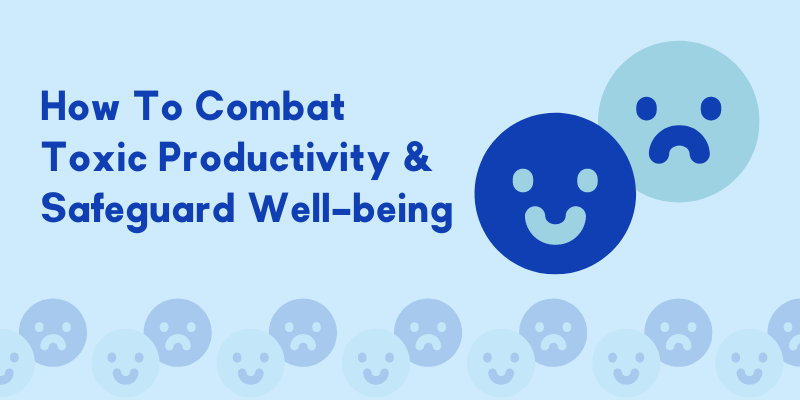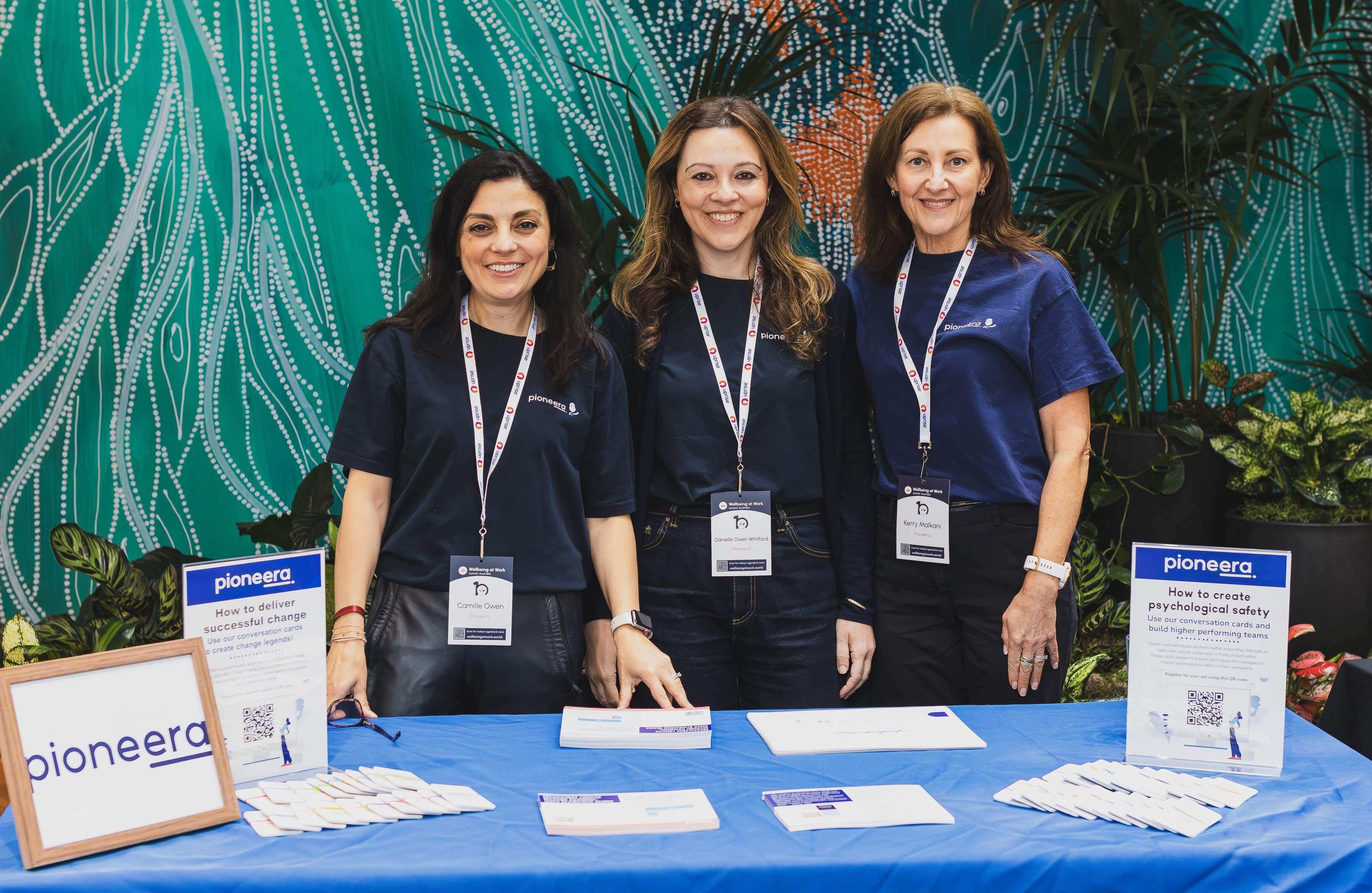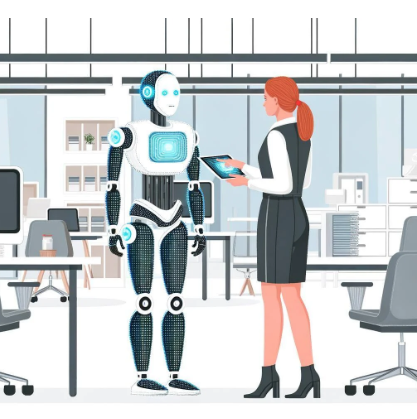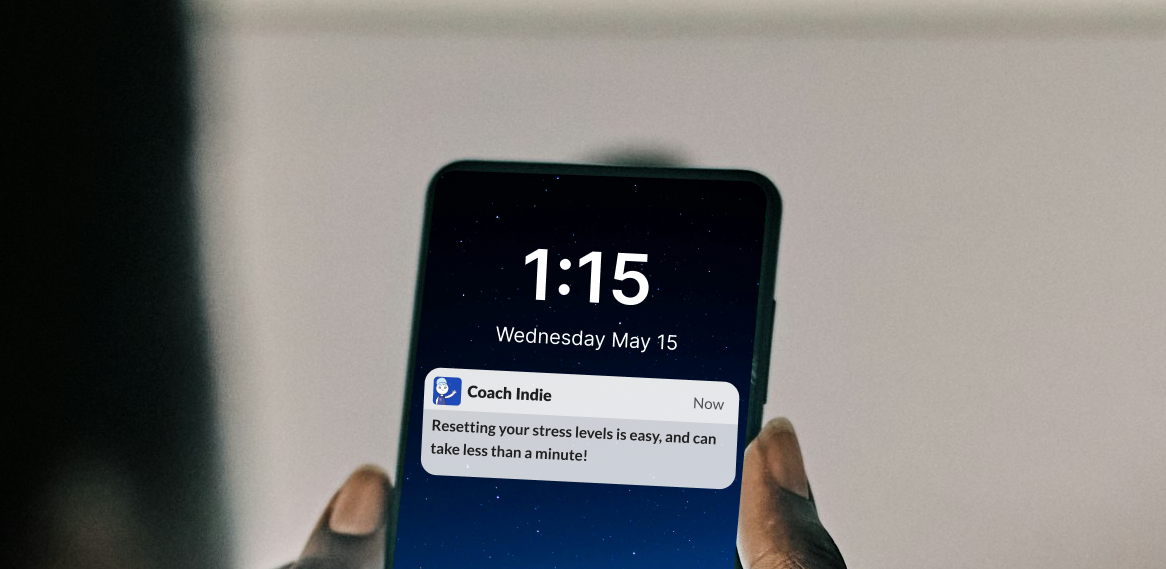While achieving organisational goals is crucial, leaders must also recognise the relentless pursuit of productivity without regard for employee well-being can give rise to "toxic productivity" – a phenomenon posing significant psychosocial risks in the workplace.
It typically falls on People, Operations and Culture leaders to spearhead initiatives empowering managers to create a balanced and healthy work environment. By understanding the connection between toxic productivity and psychosocial hazards, leaders can protect workplace mental and physical health while fostering a more resilient and engaged workforce.
Understanding the intersection between Toxic Productivity and Psychosocial Hazards:
Toxic productivity describes an excessive focus on output and performance, often at the detriment of employee well-being.
In such environments, employees may be given unreasonable workloads, feel compelled to sacrifice personal time for work on an ongoing basis, experience a lack of support from their manager, and be subject to intense competition and pressure.
These continuing pressures create what are known as ‘psychosocial hazards’, and according to Safework Australia, these create stress and psychological harm, often leading to anxiety, depression, and other health issues, and they should be treated as no different to physical workplace injuries.
For example: If someone fell off a ladder at work, the following process could be triggered:
- The person would be immediately taken to the hospital for treatment.
- The employer would investigate the accident to determine what caused it.
- The employer would take steps to prevent similar accidents from happening in the future.
Processes around workplace health and safety are designed to protect employees from injuries and illnesses. So if workplace stress contributes to a decline in mental health and well-being in people, then assessing, managing and mitigating psychological safety should be as high a priority as physical safety.
Workplace psychosocial hazards and risks can manifest in various ways:
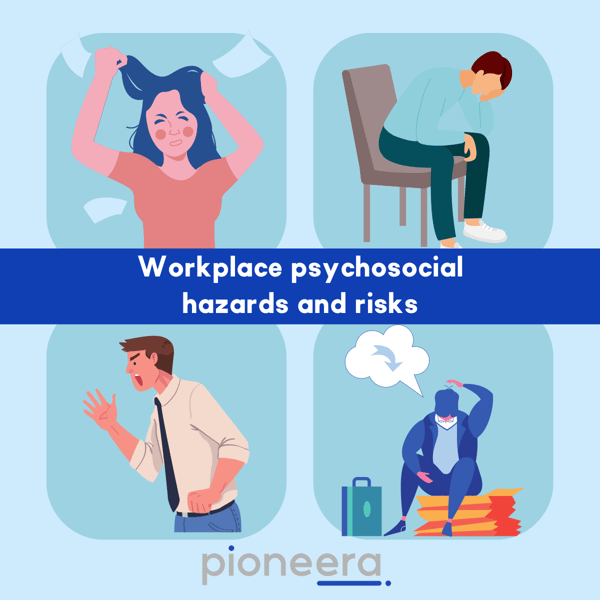
- Stress and Anxiety: Unrelenting job demands, coupled with a lack of control and support, can create chronic stress and anxiety, adversely impacting mental health.
- Burnout and Fatigue: When you push employees beyond their limits, burnout and physical fatigue become prevalent, reducing productivity and increasing absenteeism.
- Workplace Conflict: High-pressure environments can breed conflicts and poor workplace relationships, contributing to a toxic work atmosphere.
- Reduced Job Satisfaction: Toxic productivity often undermines job satisfaction, leaving employees feeling fulfilled and disconnected from their work.
Learn more about workplace psychosocial hazards here.
Empower Your Managers to Tackle Toxic Productivity:
Here are some ideas and strategies to help your managers and team combat Toxic Productivity:
- Education and Awareness: Begin by educating managers about toxic productivity, its consequences, and its impact on employees. Raise awareness about psychosocial hazards and their role in shaping workplace culture.
- Promote Work-Life Integration: Encourage managers to emphasise work-life integration rather than treating work and personal life as separate entities—flexible work arrangements and recognising personal boundaries foster employee well-being.
“Most companies are still in hybrid mode, but are dictating, to minute detail, what their particular hybrid model looks like. Setting up requirements on exactly how many days workers are required in the office, which days of the week those office days are, etc. This rigidity in the model removes many of the benefits of hybrid working, namely flexibility and employee agency” - a thoughtful and relevant conversation on Linkedin by Ted Tencza.
- Set Realistic Expectations: Collaborate with managers to establish achievable goals and targets, ensuring employees can handle unrealistic demands.
- Encourage Open Communication: Foster a culture of open communication where employees feel comfortable discussing their challenges and concerns. Open communication allows managers to identify and address potential stressors promptly.
- Offer Support Services: Provide access to mental health support services, employee assistance programs, and resources that promote resilience and coping strategies.
- Recognize and Reward Efforts: Acknowledge and reward employees for their hard work and commitment, promoting a culture that values productivity and well-being.
- Lead by Example: Senior leadership must set the tone by prioritising their well-being and demonstrating a healthy work-life balance.
- Regular Assessments: Conduct periodic assessments to gauge employee satisfaction and well-being. Use the insights to tailor interventions and support systems.
Using Technology to Tackle Toxic Productivity
Managers are vital in creating a workplace culture prioritising well-being and productivity. They bridge the organisation and its most valuable asset - people.
In the face of new hybrid ways of working and the growing pressure to retain talent and do more with less, the role of people managers has become increasingly complex and critical.
Technology can be a powerful ally in this endeavour. Pioneera uses real-time sentiment analysis to look for subconscious signs of burnout. Coach Indie (a chatbot) offers short, science-backed tips (nudges) to help reduce people-related risks and improve productivity.
With Coach Indie, you can unlock actionable insights into employee well-being, enabling you to address toxic productivity and psychosocial hazards proactively. This data-driven approach will improve well-being, enhance productivity, and increase talent retention within your organisation.
Now is the time to take the next step towards a workplace that values and safeguards the mental health of your employees. Empower your managers, embrace technology, and cultivate a workplace where the measurement of success by output and the happiness and prosperity of your people.
